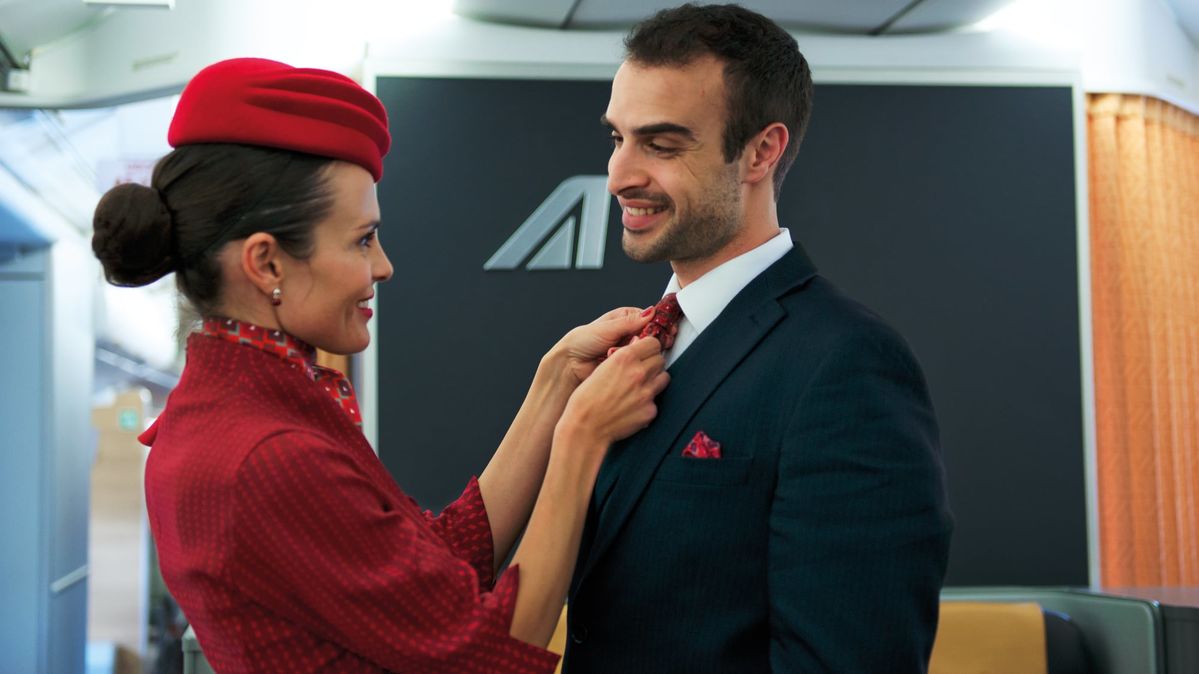Italy says ciao once again as the new Alitalia readies for takeoff
New state-backed carrier ITA buys Alitalia brand for €90m yet seeks a clean break from bankrupt predecessor.

Italy’s new flagship airline takes to the skies on Friday with the travel industry still reeling from the coronavirus crisis and low-cost rivals targeting its home market in a bid to lure away passengers.
The tough operating conditions mean Italia Trasporto Aereo faces trying times from day one as it replaces fallen national icon Alitalia, which ended flights Thursday after decades of losses and numerous brushes with bankruptcy.
State-backed ITA will use planes from Alitalia and be armed with its well-known name, after securing the brand’s purchase for €90 million on the eve of its debut. But the new airline will employ only around 2,800 of its predecessor’s 10,000-plus staff, operating a simplified network to keep down costs and help it turn a profit once demand recovers from the pandemic.
Leading the startup is Chairman Alfredo Altavilla, who made his name as a close aide to Sergio Marchionne in his turnaround of carmaker Fiat and its subsequent purchase of U.S.-based Chrysler. The 58-year-old executive was handpicked for the airline role by Italian Prime Minister Mario Draghi’s government.
ITA will initially operate 52 planes, about half the number at Alitalia, increasing to 78 next year. Growth will be spurred by an outline deal last month for 59 purchased or leased jets, all of them Airbus SE models, helping to trim crew expenses by maximizing interoperability.
EU hurdles
Even before the challenge of competing for customers, the new airline has endured a tortuous journey to reach its launch.
On the one hand, ITA has been at pains to show it will be financially self sufficient and represent a clean break from Alitalia in order secure regulatory signoff. Margrethe Vestager, the European Union’s antitrust chief, finally gave her backing last month, while outlawing subsidies paid to Alitalia.
At the same time, staff have been up in arms over ITA’s reduced workforce and new contracts, staging protests in Rome.
The company has inherited only direct airline employees from the old Alitalia, with the group’s maintenance and ground-handling operations subject to a tender offer as a result of the EU settlement.
Yet the business saw value in taking back the Alitalia name – at a discount from the original €290 million asking price – after Vestager insisted it be sold to the highest bidder. The Alitalia identity still has resonance and is seen as a useful marketing tool in international markets.
“A pretty costly family thing”
The public has meanwhile been lukewarm in its backing for a new carrier set to receive €1.3 billion in government funds on top of more than 5 billion euros splurged on Alitalia. The company first entered bankruptcy in 2008, and has been kept on life support with taxpayer proceeds.
Italians have suggested the money should be funneled into health care or education instead. But still, the emotional pull endures for a brand that at one time was synonymous with the glamour of “La Dolce Vita” and Hollywood stars jetting off to a Roman holiday.
“I consider it like a family thing – well, a pretty costly family, but a family thing,” Draghi said in April.
It will be up to ITA to carve out its place in a market that’s already well-served. Global airlines offer plenty of long-distance flights from Rome and Milan, while those cities and others have good European links through a host of carriers including Ryanair, EasyJet and Wizz Air.
The discounters boosted their presence in Italy with the easing of Covid-19 travel curbs, even as the government haggled with Brussels.
The government, though, says that Italy needs its own network airline to support tourism in what is the world’s fifth-most visited country.
Same name, same fate?
While Ryanair Chief Executive Officer Michael O’Leary has questioned the state’s role in building the new airline out of Alitalia assets, established carriers aren’t exactly quaking at ITA’s debut.
The company is likely to “go badly, as all the other Italian carriers before,” Wizz CEO Jozsef Varadi said in an interview Tuesday.
“I’m not seeing any change here, that’s a government-owned entity,” he said. “And they are basically inheriting the labor context of Alitalia and all the inefficiencies of that airline. You can’t expect much from those guys.”
Italy’s Economic development minister, Giancarlo Giorgetti, said in June that ITA must find a partner to flourish, with Delta Air Lines CEO Ed Bastian saying this month that discussions are underway over a possible alliance.
Delta’s existing North Atlantic partnership, of which Alitalia was a member, includes Air France-KLM and Virgin Atlantic Airways.
Even ITA’s own projections see years of struggle ahead before the carrier starts making money.
According to a revised business plan presented to lawmakers this month, ITA no longer expects to report a profit by 2023, envisaging instead a loss before interest and tax of €33 million, before clawing its way into the black the following year.
“It’s very difficult to make profit on domestic markets, particularly if you’ve got a combination of Ryanair and EasyJet, and presumably Wizz Air at some point, eating your lunch,’ said Peter Morris, chief economist at aviation consultancy Ascend by Cirium.
This article is published under license from Bloomberg Media: the original article can be viewed here
Etihad - Etihad Guest
21 Jul 2019
Total posts 189
ITA/Alitalia. It's like a bad movie that keeps being re-made by clueless producers with minor tweaks to the script, but the ending is always the same.
Hi Guest, join in the discussion on Italy says ciao once again as the new Alitalia readies for takeoff